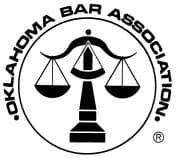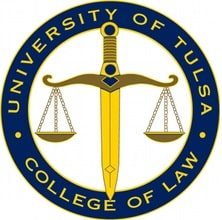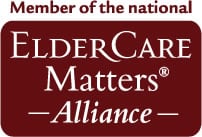
28 Sep Oklahoma Probate Q & A Part 1
For clients whose loved one has passed away, dealing with the deceased person’s personal affairs, real estate and other property can be quite a challenge. Even though the picture of what it means to probate an estate is painted as something to be avoided at all costs, this is not necessarily the case.
Oklahoma Probate Law
This will be a three-part series focusing on the most common questions we get asked about Oklahoma probate law. Let’s start by explaining what probate is, what it is for, and how you fit in. Often, those most concerned about probate after a loved one has passed, are those either named as the Personal Representative of the estate or are simply the one left with the responsibility of sorting things out.
1. What do I do first after the death of my spouse or family member?
The first steps that are taken after the death of a loved one are as follows:
-Notify family members, friends, church, and next of kin… NOT the bank.
-Meet with the funeral home to make the necessary funeral arrangements and order death certificates.
-Search for the Last Will & Testament to determine who is listed as the Personal Representative of the estate and whether any funeral instructions have been included in the Will.
2. What is probate?
Probate is a legal process that is based on state statutes which details what happens to a person’s property when they die. The Probate proceeding is supervised by the Probate court in which the decedent’s probate assets are administrated and distributed to the decedent’s heirs, devisees and legatees. The court supervises the process of gathering assets, selling assets, paying debts, determining the rightful heirs, and accounting for the distributions.
3. What happens if there is no Will?
Oklahoma Statutes determine where the assets are distributed if a person dies without a Will, (called intestate). The Probate Court will appoint a person (usually a family member) to be the Personal Representative of the estate. The Court will also appoint guardians for any minor children of the person who died. The PR will be in charge of distributing the assets. The distribution will depend upon the marital status of the decedent; if there are children; if the children are the natural children of the surviving spouse.
4. What are the steps of Probate?
-File the Probate Petition and the Last Will & Testament, if any, pay the filing fee with the probate court
-Send notice of the filing of the Will to all persons listed in the Will and those who would inherit.
– Along with the Petition must be attached various other forms and documents so that the court has what it needs to make certain determinations as provided by law.
-Have the Administrator or Personal Representative appointed. Once appointed, the Probate court issues a court order and issues “Letters Testamentary”
-Appraise and value the assets
-File an inventory listing the assets in the probate estate
-Send notice of the filing of the inventory to the heirs
-Resolve Will contests, if any
-Resolve creditor claims, if any
-File estate tax returns
-File a Final Account showing all distributions from the estate
-Transfer assets to the heirs
5. Will my estate go through probate?
Whether an estate goes through Probate or not, depends on how the decedent held assets and what types of assets were owned at the time of death. Certain assets have to go through probate, other assets do not. All assets that are titled in the decedent’s individual name alone and do not also have a surviving joint account holder or designated beneficiary, usually must go through probate.
6. What assets can avoid going through Probate?
-Jointly held property with right of survivorship
-Life insurance and annuities with named beneficiaries
-Retirement plans, IRAs, and pensions
-Assets held in a Living Trust at the time of a decedent’s death
-Payable on Death accounts
-Transfer on Death deeds for real estate
Conclusion
Each estate and family situation is unique. Most people faced with handling the estate of a loved one have not done so before. It is best to work with an attorney familiar with the process to guide you through. If you do not, the process will take longer, you may frustrate the Probate Court, and you will likely make mistakes. You can reduce stress and the burden placed on you, by finding the right attorney to work with. We at Gary W. Crews, PLLC are experienced in Probates.
If you are the Personal Representative, you likely take this role very seriously and realize that gathering the estate assets, paying the creditors, and dividing up all the property and money, down to the last detail is important to the family and family relationships. This is true whether the estate is large or small. Although the deceased person is gone, the family must continue to live together and get along. Your attorney should be sensitive to this also, along with the legal requirements and nuances.
I will be happy to talk with you about how to handle an estate after death and planning for these issues in advance. Please contact me.
THIS DOCUMENT IS NOT LEGAL ADVICE AND MAY NOT BE DEEMED TO BE LEGAL ADVICE. IT DEALS ONLY WITH THE MATERIAL SPECIFICALLY DISCUSSED HERE. YOUR SITUATION WILL BE BASED ON YOUR OWN FACTS AND CIRCUMSTANCES. YOU ARE ENCOURAGED TO SEEK THE ASSISTANCE OF YOUR OWN LEGAL COUNSEL AND TAX ADVISOR.







